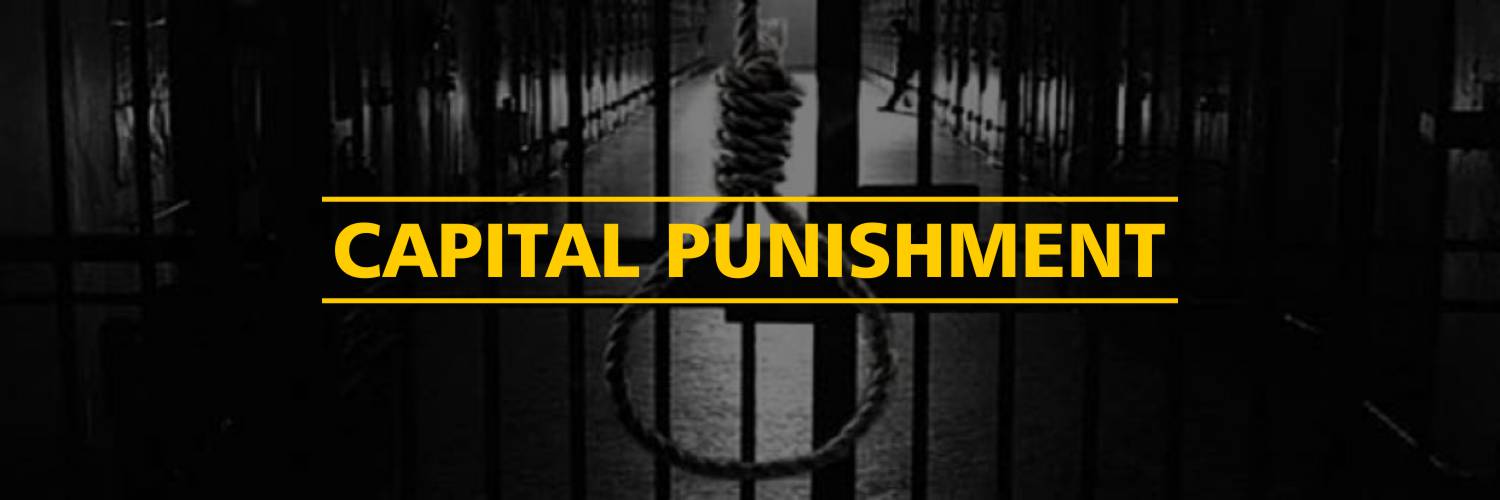Abstract:-
In any democratic country, the right to free speech and expression is a fundamental right of every citizen. But the reality is that the right to free speech and expression is not an absolute right given to the citizens, it imposes certain restrictions; defamation being one of them.
The paper will include the term Defamation and a comparative analysis of the term and defamation laws.
The recent developments in the legal area have brought into action – The Defamation Debate, The central theme of which is to decriminalize Defamation. The Article, therefore, examines the Defamation debate in the light of a landmark case: Subramanian Swamy Vs Union of India.
Introduction
The law gives protection to a man’s reputation, which to some is dearer than life itself. Love of reputation inspires people to do great things. The law of defamation aims to protect one’s reputation, honour and dignity in society.
The basic notion behind the law of defamation is simple. It is an effort to balance the private right to protect one’s reputation with the public right to freedom of speech.
As per Winfield, “Defamation is the publication of a statement which tends to lower a person in the estimation of right thinking member of the society generally.”
As per Salmond, “The wrong of defamation consists in the publication of a false and defamatory statement respecting another person without lawful justification or excuse.”
Nowadays, Defamation has become a very sensitive issue; the growing media frenzy which has been created over the freedom of speech and expression as envisaged under Article 19(1) (a). There exists a fear in the psyche of an individual whether in their individual or public capacity which of their statement might constitute or furore or land them behind bars.
History Of Defamation Laws in India
Defamation laws in India were brought by Lord Macaulay in 1837 in the principal draft of the Indian Penal Code and consequently codified in 1860. The offence of defamation was similar to the predominant English law. The intention behind criminalizing the act of defamation in British India was unquestionably connected with ensuring the interests of the British Raj, the security of the state, and public order. Consequently, Section 499 of the Indian Penal Code, 1860, was established and has stayed unaltered throughout the last 158 years.
In July 1988, Rajiv Gandhi’s administration, injured by allegations of the Bofors affair, introduced a defamation bill, which tried to make new offences of “criminal imputation” and “scurrilous writings”. The bill widened the definition of the term ‘Defamation’ and shifted the burden of proof from the aggrieved to the accused. The Lok Sabha had passed the bill and the bill was to be presented in the Rajya vSabha from that point. A highly successful nationwide strike by the newspaper industry and increasingly strident popular protests forced the government to withdraw the bill.
The press release withdrawing the bill stated: “A free press is an integral part of the inner strength and dynamism of our democracy. Without a free press, there can be no democracy. The imperishable values of our freedom struggle have gone into the making of the press in India. We uphold this legacy.”
Defamation Laws: Comparative Analysis
English law:
The Defamation Acts of 1952 and 1996 are the important statutes in England that lay down the law related to defamation. Under English law, there is a distinction between libel and slander. Two reasons have been accorded. Firstly, libel not slander is punishable under Criminal law. Slander is no offence. Thus, libel is always actionable per se. Secondly; in most cases of slander “special damage” must be shown. As far as the law of torts is concerned, slander is actionable, only in exceptional cases on proof of special damage. There are four exceptional instances in which proof of special damage has to be proved:
- Imputation of a criminal offence to the plaintiff;
- Imputation of a contagious (disease) or infectious disease to the plaintiff (which has the effect of preventing others from associating with the plaintiff).
- The imputation that a person is incompetent, dishonest or unfit concerning the office, profession, calling or trade or business carried by him.
- Imputation of corruptness or adultery to any woman or girl is also actionable per se. This exception was created by the Slander of Women Act, 1891.
American law:
In the United States (US), defamation law is much less plaintiff-friendly as compared to its European counterpart due to the enforcement of the First Amendment (Freedom of religion, press and expression). The First Amendment reads as: Congress shall make no law respecting an establishment of religion, or prohibiting the free exercise; or abridging the freedom of speech, or of the press, or the right of the people peaceably to assemble and to petition the Government for a redress of grievances.
One very important distinction in present times is that European and Commonwealth jurisdictions adhere to a theory that every publication of defamation gives rise to a separate claim so that defamation on the Internet could be sued in any country in which it was read, while American law only allows one claim for the primary publication. Further, there is no distinction between libel and slander. This is because different states have different definitions. Some states codify what constitutes slander and libel together into the same set of laws. Some states have criminal libel laws on the books, though these are old laws which are very infrequently prosecuted.
Protection of certain rights regarding freedom of speech etc
- Freedom of speech and expression;
- To assemble peacefully without arms;
- To form associations or unions;
- To move freely throughout the territory of Indi Section 499 of The Indian Penal Code, 1860 a
- Omitted by the 44th Amendment Act
- To practice any profession, or to carry any occupation, trade, or business.
- To reside and settle in any part of the territory of India
According to the Indian Constitution, the fundamental right of free speech i.e. Article 19 is subject to some reasonable restrictions. Defamation “reasonable restrictions” are defined in Section 499 of The Indian Penal Code, 1860. However, in India, the case of Defamation can be filed under criminal law or civil law or cyber law.
What Is Defamation?
Section 499 of Indian Penal Code defines the offence of defamation.
“Defamation is whoever, by words either spoken or intended to be read, or by signs or by visible representations, makes or publishes any imputation concerning any person intending to harm, or knowing, or having reason to believe that such imputation will harm, the reputation of such person, is said, to defame the person.”
Ingredients – The offence of defamation consists of the following essential ingredients. They are:-
- Making or publishing an imputation concerning a person;
- Such imputation should have been made,-by word either spoken or written, or by signs, or by visible representations;
- The said imputation should have been made with intent to harm or knowing or having reason to believe that it will harm the reputation of such person or defame him.
The section is aimed at the protection of the reputation, integrity, and honour of the person. The definition of the offence contains three important elements which include
- the person,
- his reputation, and
- The harm to the reputation of the person with necessary mensrea (guilty mind).
Categories Of Defamation
Defamation can be divided into two categories:-
1. LIBEL:- Representation in a permanent form, e.g., writing, printing, pictures etc.
2. SLANDER:- Depiction in a transient form. It is basically through words spoken or gestures.
Section 499 also cites exceptions:-
The exceptions comprise of “imputation of truth” which is needed for the “public good” and it has to be published, on the public conduct of government officials, the conduct of any person touching any public question and the merits of the public performance.
Punishment for Defamation:- Section 500 defines Punishment for Defamation,
“Whoever defames another shall be punished with simple imprisonment for a term which may extend to two years, or with fine, or with, or both.” The offence under this section is non-cognizable, bailable and triable by a Court of Sessions.
Case Law Related Defamation Law – Subramanian Swamy V Union of India
Case Description
The Supreme Court has upheld the constitutionality of the criminal offence of defamation under Section 499 and Section 500 of the Indian Penal Code.
Background
In 2014, Dr. Subramanian Swamy alleged Ms. Jayalathitha of corruption. In response, the Tamil Nadu State Government filed defamation cases against Dr. Swamy. Thereafter, DrSwamy and other prominent politicians challenged the constitutionality of the criminal defamation law in India, i.e., “Sections 499 and 500 of the Indian Penal Code (IPC). A two-judge bench of the Supreme Court comprising Justices Dipak Misra and P. C. Pant decided the case.
Section 499 defines defamation and Section 500 prescribes the punishment. Defamation is defined as spoken or written words or visible representations, concerning any person intended to harm his/her reputation. Exceptions to this include an ‘imputation of truth’ required for a ‘public good’, or the conduct of any person touching any public question, or expressing opinions on a public performance.”
The challenge before the court was twofold – first, whether criminalizing defamation is an excessive restriction on freedom of speech, and second, whether the criminal defamation law under Sections 499 and 500 is vaguely phrased and hence arbitrary.
On 13 May 2016, the Court held that Section 499 is not an excessive restriction under Article 19(2). It held that society is a collection of individuals, and what affects individuals also affects society as a whole. Therefore, it is held that it is absolutely valid to treat defamation as a public wrong. It held that criminal defamation is not a disproportionate restriction on free speech, because the protection of reputation is a fundamental right as well as a human right.
The Court relied on the judgments of other countries and reaffirmed the right to reputation as a part of the right to life under Article 21. Using the principle of ‘balancing fundamental rights, the court held that the right to freedom and speech and expression cannot be “allowed so much room that even the reputation of an individual which is a constituent of Article 21 would have no entry into that area”.
‘Further, the Court held that Sections 499 and 500 IPC are not vaguely worded or ambiguous.’ Using the Constituent Assembly Debates to understand what the framers of the Constitution meant by the word “defamation” in Article 19(2), the Court held that the word is its own independent identity. It stands alone and defamation laws have to be understood as they were when the Constitution came into force.
In India Defamation Is Both, Civil Wrong and a Criminal Offence
Defamation As A Civil Wrong: Civil Defamation comes under the Law of torts which focuses on libel defamation (written defamation) and not on slander defamation (spoken defamation). A person whose reputation has been harmed or he is defamed can move court and can claim damages in the form of monetary compensation from the accused.
Defamation As A Criminal Offence: Section 499-502 of the Indian Penal Code, 1860 protects the reputation of an individual/person. Section 124A is about Defamation against the state (sedition). Section 153A is about defamation of a class i.e. community (Riot). Section 295A deals with hate speech with regards to hurting religious sentiments (hate speech). Any individual found guilty for the commencement of Defamation in terms of Section 499 of the Indian Penal Code, 1860 (IPC), the punishment is given under Section 500 of IPC which is simple imprisonment for up to two years or a fine or both.
What Is the Difference Between A Civil Wrong And A Criminal Offence?
Civil wrongs and criminal offences are usually different in terms of their punishment. Criminal cases will have jail time as a potential punishment. However, civil cases only result in monetary damages. But a criminal case may involve both jail time and monetary punishments in the form of a penalty.
The standard of proof is also different in a criminal case than in a civil case. Crimes must generally be proved “beyond a reasonable doubt”, whereas civil cases are proved by lower standards of proof such as “the preponderance of the evidence”.
Why Are Sections 499 And 500 of IPC Challenged?
Section 499 of the Indian Penal Code, 1860 states that an individual whose reputation has been harmed or was intended to be harmed by any means can file a case of defamation. However, these are challenged on the ground fact that this is a violation of the right to freedom of speech and expression which is provided under Article 19 of the Indian Constitution.
Arguments For Why Sections 499 And 500 Should Be Declared Unconstitutional
Sections 499-500 of IPC does not constitute a “reasonable restriction” on discourse as remarked by numerous because in any case, even the truth is not a guard. Regardless of whether an individual has spoken the truth, he can be prosecuted for defamation. ‘Under the first exception to section 499, the truth will only be a defence if the statement was made for the public good, which is a question of fact to be assessed by the court. This is a discretionary and overbroad rule that dissuades an individual from making statements regarding politicians or political events even that they know to be true because they run the risk of a court not finding the statement to be for the public good.’
Second, a person can be prosecuted under section 499 even if he or she has not made any verbal or written statement. A magistrate may issue criminal process on the mere allegation that the defendant conspired with the person who has made allegedly defamatory statements.
Third, a person can be prosecuted even for making a defamatory statement about the dead. While Article 19(2) permits restricting speech in the interests of protecting the private interest in a reputation, restricting speech to protect the reputation of the deceased is excessive and over-broad.
Fourth, even an ironic statement can amount to defamation. Also, since Section 499 of the Indian Penal Code applies to “any imputation concerning any person,” a criminal suit can be filed even for political speech – which is the most protected speech in a democracy.
It is a tool that can be easily invoked and that enables any allegedly defamed persons to drag anyone to courts across the country.
Finally, it is unclear why defamation has to be a criminal offence at all and why civil remedies are not sufficient.
Arguments For Why Section 499 And 500 of IPC Is Not Unconstitutional-
The reputation of one cannot be allowed to be executed at the altar of the other’s right to free speech. So there is no point in declaring that the present law is unconstitutional. There is a need to strike balance between Article 19 and Article 21.
Unlike other inflexible provisions of the IPC, Sections 499 and 500 also include explanations and exceptions which do both: they add content and context to the offence and also chisel away at it substantially. They constitute a significant counterfactual to exclude frivolous complaints.
A mere misuse or abuse of the law, actual or potential, can never be a reason to render a provision unconstitutional.
Why Should It Remain A Criminal Offence And Not Made A Civil Offence?
In India, citizens are unlikely to have enough liquidity to pay damages for civil defamation.
It is also stated that online defamation in the Internet era can be effectively countered only by making it a criminal offence, and the law is part of the state’s “compelling interest” to protect the dignity and reputation of all citizens.
What Is The Supreme Court’s View On Defamation?
The Supreme Court has stated that the criminal provisions of defamation are constitutionally valid and are not in conflict with the right to free speech.
The court stated that notwithstanding the expansive and clear ambit of freedom of speech, like all rights, the right to freedom of speech and expression is “absolutely sacrosanct” but “is not absolute.” Additionally, it is subjected to the imposition of reasonable restrictions. It also said that the reputation of a person is an integral part of the right to life granted under Article 21 of the Indian Constitution and it can’t be permitted to be executed at the special step area of the other’s right of free speech.
Conclusion
I would like to conclude by adding that Criminal defamation should not be allowed to be an instrument in the hands of the state, especially when the Code of Criminal Procedure gives public servants an unfair advantage by allowing the state’s prosecutors to stand in for them when they claim to have been defamed by the media or political opponents.
Also, I would like to add a translation of some lines written in the Holy Quran
“Let not some men among you laugh at others: it may be that the (latter) are better than the (former): Nor defame nor be sarcastic to each other, nor call each other by (offensive) nicknames, ill-seeming is a name connoting wickedness, (to be used of one) after he has believed: and those who do not desist are (indeed) doing wrong.”
This article is written and submitted by Mohd Shaaz Peerbaksh during his course of internship at B&B Associates LLP. Mohd Shaaz is a 5th year law student from IMS Unison University, Dehradun.




